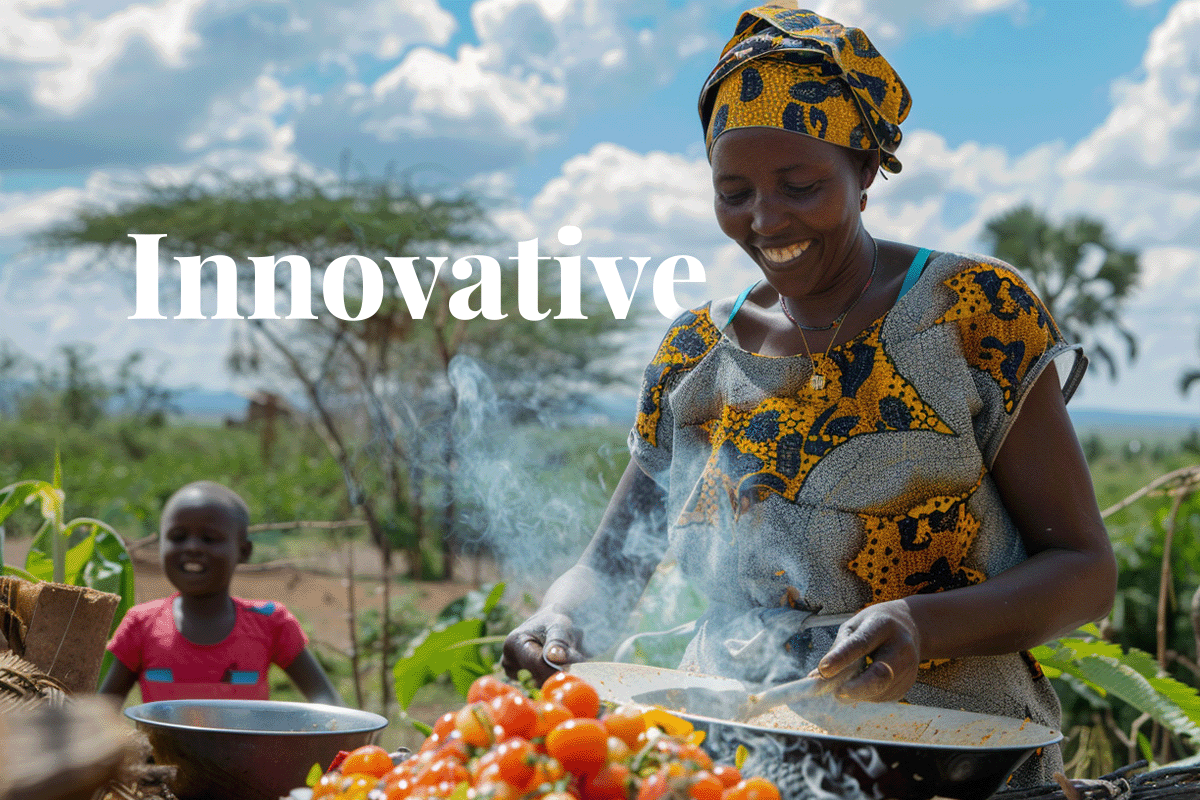In a groundbreaking move for Africa’s carbon market, EcoSafi, together with the Gold Standard, has launched the continent's first carbon credits certified under the rigorous Metered and Measured Energy Cooking Devices (MECD) methodology. This historic initiative positions EcoSafi as a significant actor in the sustainable clean cooking solutions sector, which not only supports nature restoration but also health and gender disparities.
 African woman preparing a meal, a kid playing in the background. AI generated picture.
African woman preparing a meal, a kid playing in the background. AI generated picture.
The Nairobi-based company has introduced a unique model combining gasifying cookstoves with sustainable biofuel. This approach significantly reduces emissions by over 90% compared to traditional fuels like charcoal and wood, which are responsible for millions of premature deaths annually and substantial deforestation across Africa.
Discover DGB’s Hongera Energy Efficient Cookstoves Project in Kenya
Tom Price, CEO of EcoSafi, emphasised the importance of their high-quality, verifiable carbon credits. ‘Carbon credits are notoriously difficult to verify, so we built unmatched certainty and measurability directly into our process. This level of insight helps us stay ahead of the curve and earn the trust of the most diligent buyers on the market’, he stated.
Gold Standard, known for its robust impact measurement methodologies, has certified fewer than a handful of projects worldwide using the MECD method, with EcoSafi’s project being the first in Africa fueled by biomass. Margaret Kim, CEO of Gold Standard, highlighted the environmental and developmental benefits of such projects. ‘Gold Standard-certified clean cooking projects have reduced over 90 million tonnes of CO2 from entering the atmosphere to date, leading to a calculated 23 billion US dollars in shared value’, she said.
EcoSafi also ensures economic viability through its business model. Customers in Kenya receive advanced cookstoves and subscribe to affordable, eco-friendly fuel pellets made from sugarcane waste. This not only cuts fuel costs by up to 40% but also supports local communities by turning agricultural waste into a valuable resource.
As EcoSafi prepares for the International Energy Agency’s Summit on Clean Cooking in Africa, its successful issuance of carbon credits underlines the potential for sustainable business practices to drive significant environmental and social improvements continent-wide.
Read more: DGB’s Kenya cookstove project: kicking off 2024 with sustainable impact
Nestled in the lush landscapes of Mt Kenya and the Aberdare regions, DGB Group's Hongera Energy Efficient Cookstoves Project in Kenya epitomises local craftsmanship aligned with sustainable development. Our cookstoves go beyond being mere appliances; they are a symbol of sustainability, thoughtfully designed to address the unique needs of the communities we serve. By significantly reducing the need for firewood, these stoves play a critical role in preserving local forests, cutting down on deforestation, and creating healthier home environments, all while offering employment opportunities within the community.
The project is a shining example of how localised solutions can yield global benefits. With our stoves, cooking times are reduced, and exposure to harmful smoke is minimised, significantly decreasing the risk of respiratory diseases and enhancing overall community wellbeing.
DGB's commitment to integrating local needs with global environmental priorities has never been stronger. As we engage more deeply with the communities and promote sustainable practices, the Hongera Energy Efficient Cookstoves Project is sparking a global movement towards better health and greater environmental responsibility. We invite you to join us on this remarkable journey, as we continue to ignite change, one cookstove at a time.
Join DGB in our green mission by discovering our carbon units



